Don’t Fall For It!
Remember back in October when the second round of stimulus payments were merely rumors? Since that time, a new stimulus package was approved, and many eligible citizens have already received their deposits. Currently, there is a proposal for a third economic impact plan, which is expected to deliver $1,400 checks to eligible Americans. With the prospect of financial assistance on the horizon, scammers are gearing up to take advantage of you – again. Since we never want to see our members get scammed, we thought this would be the perfect time to brush up on fraud prevention.
Stay Informed
The widespread financial impact of the pandemic means that the media coverage is virtually non-stop. This is to your advantage! A well-informed consumer is the best defense against fraudsters. Aside from virus transmission and hospitalization stories, the news will be sure to release updates on upcoming financial relief efforts. This will include payment amounts, expected delivery timelines, and of course, the status of the plan as it moves through Congress. Pay special attention to the payment amount and the method of delivery. If you have received the last two stimulus payments via direct deposit, receiving a check in the mail would be suspicious (unless you owed taxes for the previous year, which could result in a check being mailed to you at a later date).
Sharing is Caring
If something sounds suspicious, or if you feel pressured or confused, do not hesitate to contact a trusted friend, family member, or your financial institution. Trust me, your credit union has heard them all, and they can help you make sure you aren’t conned.
Sharing is Caring – Except when it’s Not
Since many of us have been in isolation for the better part of a year, it may be tempting to overshare when the opportunity arises. In this case, TMI can be very dangerous. Before you spill the tea, take a second to think. You should never share personal information with anyone you don’t know. Be especially careful to guard your social security number, account numbers, online banking credentials, and four-digit PINs. If your information is printed or written somewhere, be sure to shred it before disposing of it. Home shredders are an easy and affordable way to protect your information – just be sure to invest in a micro-cut model for optimum security.
Who’s Who?
If you receive a call or an email from someone claiming to represent a government office or another official organization, PAUSE. If something doesn’t sound right, it probably isn’t. When in doubt, you should end a call and dial a known, published number, not from the email you might have received or from the caller ID. Pay special attention to written communication. Professional emails will follow branding guidelines and will be grammatically correct. Also, it is important to remember that just because the logo is there doesn’t mean it is legit. Anyone can Google a company logo. I have a great example of scam emails in this post if you are curious.
Protect yourself! No one has your best interests at heart more than you do (well…except maybe your credit union.) :)
I want to hear from you! Leave a comment below, or send me an email!
Krista Kyte is a personal finance blogger and personal banker with over 18 years of experience in the financial industry. Krista is passionate about helping our members understand their financial situations. She writes tips that will help consumers reach and maintain financial security, and start living the life they’ve always wanted.




